Daren Gilbert
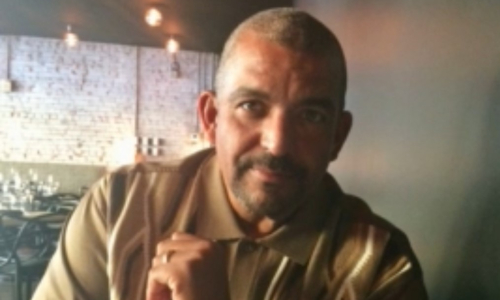
Daren Gilbert was born October 3, 1963 in San Diego, CA. The Gilbert family relocated to Compton, CA, where Daren attended Emerson Elementary School, Ambassador Christian School in Downey, CA, and graduated in 1981 from Dominguez High School in Compton. Daren obtained his Bachelors of Science in criminal justice from California State University Fullerton and later received his Master’s Degree in Education Administration from California State University of San Bernardino.
In high school, Daren played both basketball and football. Football became his passion and he earned a full ride scholarship to Cal State Fullerton. He started in every game for three seasons and was the team’s co-captain. The CSUF Titans won the PCAA Championship in 1983 and 1984, played in the Cal Bowl in 1983 and the undefeated 1984 Titan team was inducted into the CSUF Hall of Fame in 2019. Daren was an all-star selection to play in the East-West Shrine game in 1985. That same year, the New Orleans Saints drafted him 38th overall. Today, he holds the record for the highest NFL draft round pick from Cal State Fullerton. Daren was a member of the first winning team for the Saints. Daren’s older brother, Darren Comeux, also played 10 years in the NFL and in 2009 his son, Jarron Gilbert, was drafted in the 3rd round by the Chicago Bears. All three are proud members of the NFLPA. After the NFL, Daren devoted his life to teaching and coaching. He coached several sports and positively impacted the lives of many youth in Southern California.
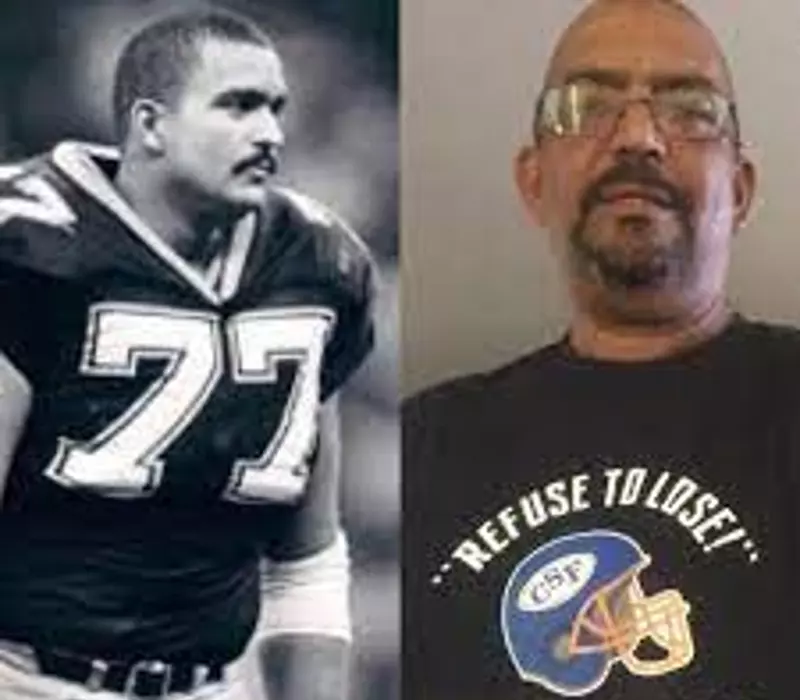
What happened to my best friend? A Wife’s Story
Daren had various struggles throughout life after playing in the NFL. Married 36 years, we worked diligently to solve most problems. Daren developed many tools to function in life. We were working with The Cleveland Clinic, Boston University CTE Center, and the NFLPA – The Trust to develop strategies to live a functioning life with CTE. COVID caused new problems. Many of the tools we were using were greatly impacted by COVID and Daren began to change into a different person.
COVID had a drastic impact on our relationship. The restraints of being confined and not following his daily routine made him angry and difficult to live with. I became scared and concerned. Most of his acts of anger were directed towards me and he didn’t remember doing the act after it occurred. My best friend turned into a stranger. Soon the CTE behavior consumed him. This began a downward spiral into a dark world. Daren was a beautiful person murdered by CTE.
On Thursday, August 4, 2022, at home, Daren suddenly and unexpectedly transitioned from this life to eternity. Daren is survived by his wife of 36 years, Alayna McGee Gilbert, his children Jarron Gilbert (Cassandra) and Kourtney Gilbert, and grandchildren Londyn, Jayda and Amari Gilbert, and Laila Criscione. Daren was a great human and will be greatly missed by all.
Cookie Gilchrist
“He always took a stand for the rights of others. He often stood alone in his beliefs against all odds. To me, though, he was just my dad.”
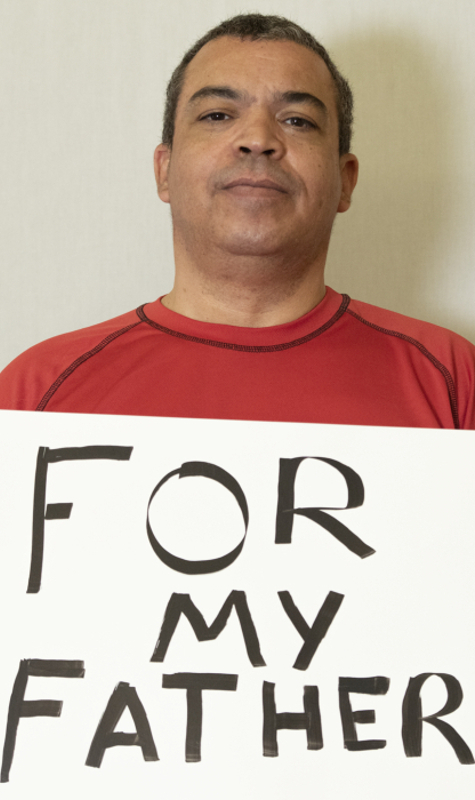
A million precious moments and memories
By Jeff Gilchrist
My dad was just my dad to me. Plenty of laughter, tickling, protection and endless affection and love were given to my brother and me.
I am truly humbled as a son, and as a man, to know how many lives he touched with his sincere, undivided attention. He loved to give, share and to live in the moment. This was an important example he embodied in me.
He always took a stand for the rights of others. He often stood alone in his beliefs against all odds. To me, though, he was just my dad. His spirit and essence lives inside of me, and he is not forgotten. His soul lives on with the many stories and tales of this legendary giant among men.
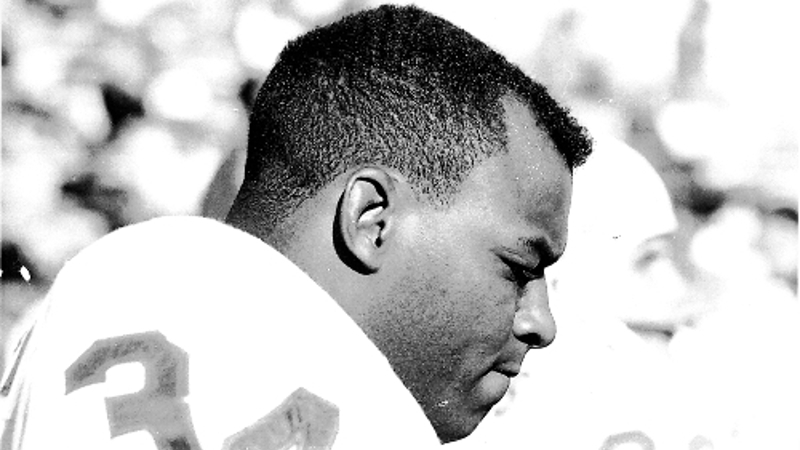
And yet, he was just my dad to me. I am truly grateful for the recent discoveries relating to impact head injuries that now explain the difficult last years of his life. They affected his memories and the moments which he had no control over due to the brain trauma he suffered playing years of pro football.
My precious dad suffered in a horrible way from this trauma. In many ways it stole part of my dad from me. Yet, he is and will always be my dad. My million precious memories will continue to keep him alive for me.
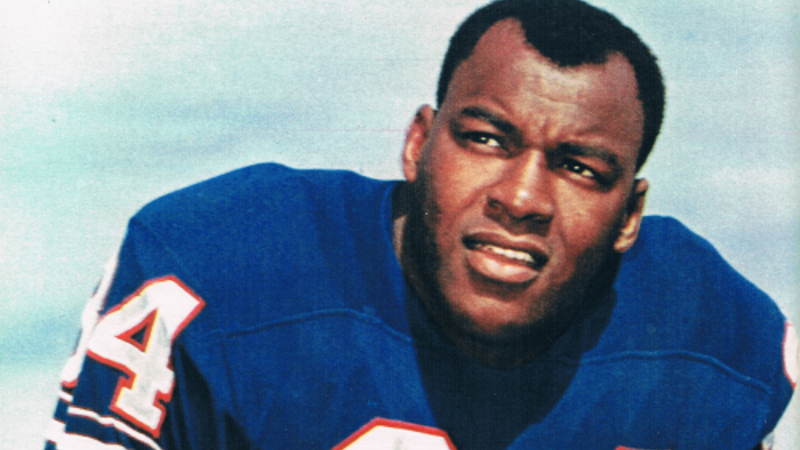
I would like to thank the Concussion Legacy Foundation for their hard work and tireless effort to bring awareness of this issue to all.
Todd Gillingham
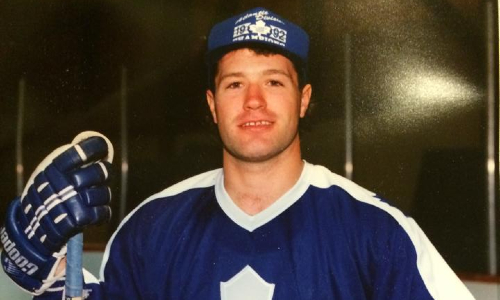
Todd Gillingham had a quirky smile and a twinkle in his eye. He was the guy who lit up a room when he walked in. Todd was the life of a party and knew how to live each day to its fullest.
Growing up in Corner Brook, Newfoundland, Canada, Todd spent the summers of his youth on the baseball field, with cleats and bats giving way to skates and sticks during the winter months. He excelled at both sports but eventually turned his full attention to hockey, which he started playing around four years old. He was always the biggest guy on most teams, so expectations for him to excel were always high. But no problem for Todd — he surpassed them and much more.
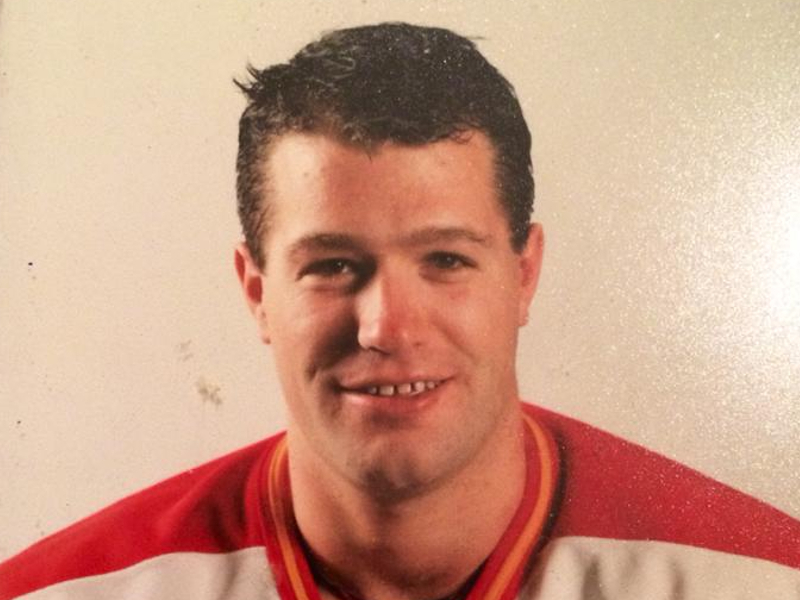
Though Todd was big and could throw a hit, he would often give a shoutout to the smaller players prior to checking them. That’s the kind of guy he was. His dedication to hockey paid off at the age of 16, when he joined the Verdun Junior Canadiens of the Quebec Major Junior Hockey League (QMJHL).
Despite moving from his small Newfoundland home community (population 20,000) to a largely French-speaking suburb on the outskirts of Montreal, Todd immersed himself in the culture and taught himself French. This wasn’t surprising to those who knew him. Todd’s level of intelligence can be best exemplified during his senior year in high school, while still playing hockey in Quebec, when he returned home with six weeks left in the school year. His goal was to write his final exams and graduate with all the kids he grew up with. Mission accomplished.
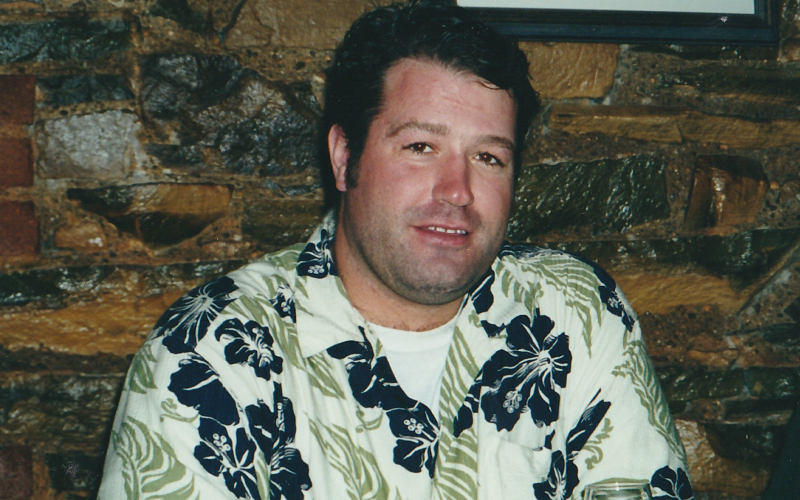
From the moment Todd first stepped on the ice in the QMJHL, he developed a reputation as a rugged player. His hard-nosed approach to the game meant he was called upon to drop the gloves on a regular basis. By the time he ended his four-year career there, he had amassed 971 penalty minutes in just 265 games. And though he never wanted to be known as a fighter, Todd ultimately would do whatever it took if it meant achieving his goal of playing in the National Hockey League.
Unlike the prototypical hockey enforcer, Todd didn’t just excel with his fists. In his final year, he finished the regular season with 46 goals and a league-leading 102 assists in 66 games. His 148-point total ranked him second in the entire league behind teammate Yanic Perreault.
After his junior career came to an end, Todd spent 10 years in the minor professional ranks playing in Canada, the United States, and Wales. But most teams didn’t see him as a scorer or playmaker — they wanted him solely for his toughness and grit. So, he found himself trading punches for that decade with some of the strongest hockey players in the world.
For a burly guy with a reputation as a fighter on the ice, Todd was a calm, sensitive, and kind individual away from the rink. He would send flowers to his grandmother on special occasions, email his mom electronic greeting cards, and even sold old equipment to help finance his sister’s last year of university.
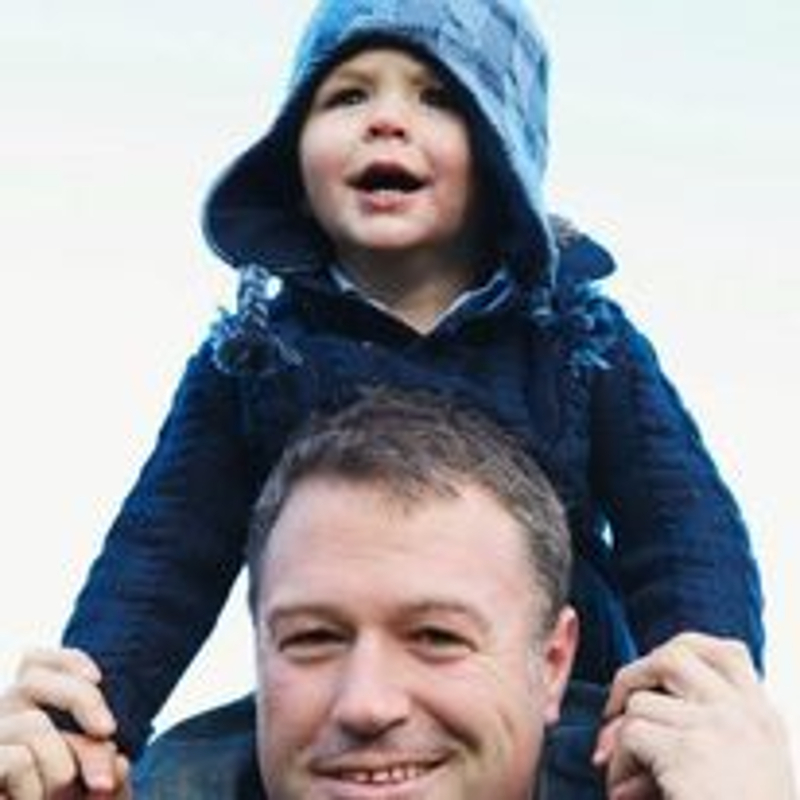
Once Todd finally decided to hang up his skates, he completed his degree and started a family. He put his post-hockey career on hold for a few years to help raise his children, before eventually acquiring a real estate license. He loved his family and was a terrific father, whether putting his daughter’s hair into ponytails and watching her play soccer, wrestling and playing chess with his son, or having the neighborhood kids over for a campfire. He really tried his best to be a good dad.
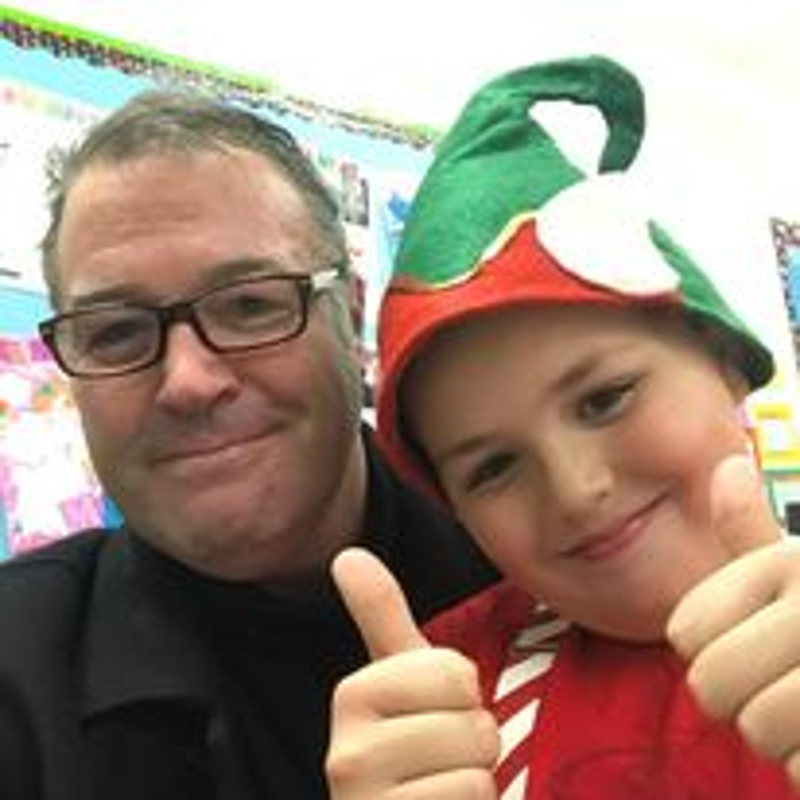
Todd was diagnosed with more than 30 concussions during his playing career, but it’s suspected the actual number of injuries was much higher. Oftentimes, blows to the head were dismissed, not diagnosed, or left untreated. No one is positive when he first started to show signs of concussion-related issues, but loved ones did notice a distinct change in behavior almost immediately after his playing career ended in 2001. He started partying heavily and living more carefree. And while he remained close to his family, Todd began to bottle his emotions. His family just assumed it was due to difficulty adjusting to life after hockey or struggling with the loss of his father when Todd was 24 years old.
Over the years, as cases of Post-Concussion Syndrome (PCS) among professional athletes became more widely known to the public, Todd began to suspect his mental health issues could be related to the multiple head injuries suffered during his career.
In 2017, Todd’s worries were confirmed.
After traveling to California for medical testing, scans detected several black spots on his brain, an indication that part of Todd’s brain was no longer functioning. Doctors suggested he learn new activities to help encourage brain plasticity and increase neural pathways, not unlike senior citizens who begin experiencing memory loss. Todd began taking piano lessons, doing yoga with his daughter, and even pruning small bonsai trees.
Still, his condition kept worsening.
Soon, Todd noticed seasonal changes directly impacted his emotional condition. He struggled to adjust and experienced increasing head pain. He was at his worst on nights when the moon was full. He tried using a sunlamp during the dark winter months to trick his brain into thinking it was light out and to help with serotonin regulation.
But it became too much for him to handle, and things began to fully unravel.
After being prescribed medication to treat symptoms of depression, Todd began self-medicating. The headaches that had become part of daily life were worse than ever. He battled substance abuse. His marriage failed, his career fell apart, and he ran afoul of the law. He spent countless hours sitting quietly, rubbing his head. His family tried to provide a support system but often felt helpless as they watched someone they loved turn into a completely unrecognizable person.
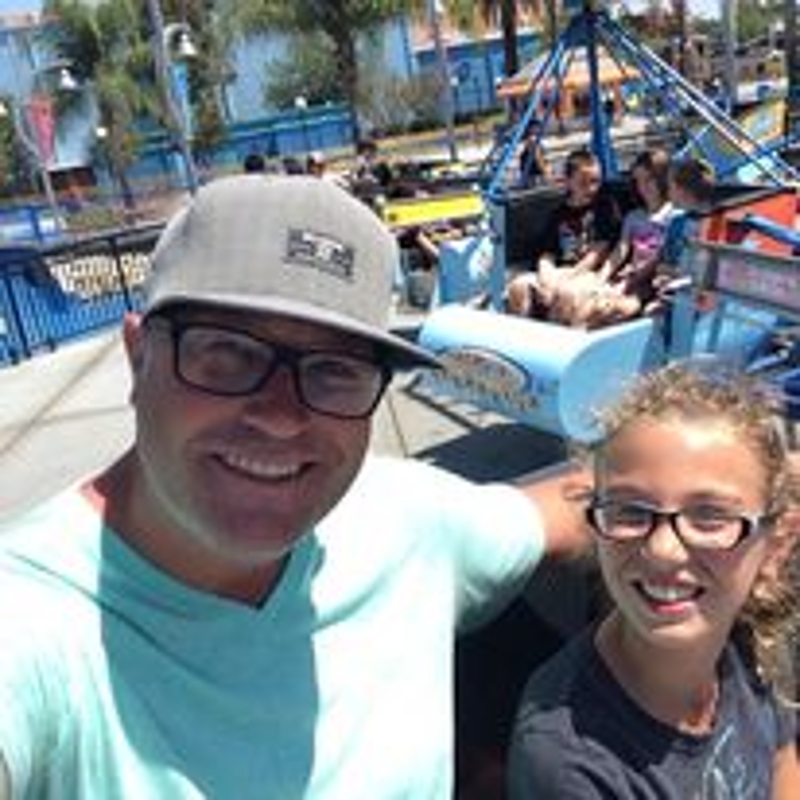
Todd then developed cataplexy, characterized by transient episodes of voluntary muscle weakness precipitated by intense emotions. He withdrew more from daily activity and cared less and less about living. He would ask if we thought he was a good dad and say how he ruined relationships with special people in his life.
Even during his struggles, Todd was aware of the brain issues that had claimed some of the lives of his hockey peers. In an online blog he wrote on October 18, 2011, titled “Warning Bells Are Ringing,” Todd addressed the recent deaths of former NHL enforcers Wade Belak, Rick Rypien, and Derek Boogaard. Belak and Rypien both took their own lives after battling chronic depression; Boogaard had passed away from an accidental overdose. All three had later been diagnosed with CTE.
Todd wrote: “My problem with all of this is that there is a far greater issue and problem slowly emerging that has not garnered anywhere (near) the amount of attention it deserves, and this problem, unlike the recent onslaught of head injuries and rule changes, has been around the game forever at all levels.
“This past summer three young men… who were playing or just recently retired lost their lives at very young ages, and I find it terribly disturbing how it seems to be all but forgotten. I can guarantee you one thing, that if these tragic deaths would have occurred to some of the game’s higher echelon players, there would have been a full investigation and research carried out by both the NHL and Hockey Canada, as to how and why these types of tragedies can occur to our players, and they would be quick to react and get some damage control done to protect the NHL’s and Hockey Canada’s pristine image.”
“Why do I believe this is the case? Because I have played the game at all levels and have experienced some of these mental health issues that these players have.”
Todd Gillingham died in an alleyway in downtown St. John’s, Newfoundland in the late afternoon hours of Jan. 14, 2023. He was 52 years old. While some speculated his mental health issues may have finally been too much for him to battle, his cause of death was determined to be the same heart condition that resulted in the untimely death of his father Cavin at the age of 46 in 1994.
Well before Todd passed away, he requested his family donate his brain to science in the hopes of finding answers to the question of why he was in so much pain during his final years. As he told them: “If I could go back in time, I would have given it (hockey) all up in exchange for a healthy brain and life.”
Ironically, Todd gave everything to the sport he loved, but the sport did not return the favor.
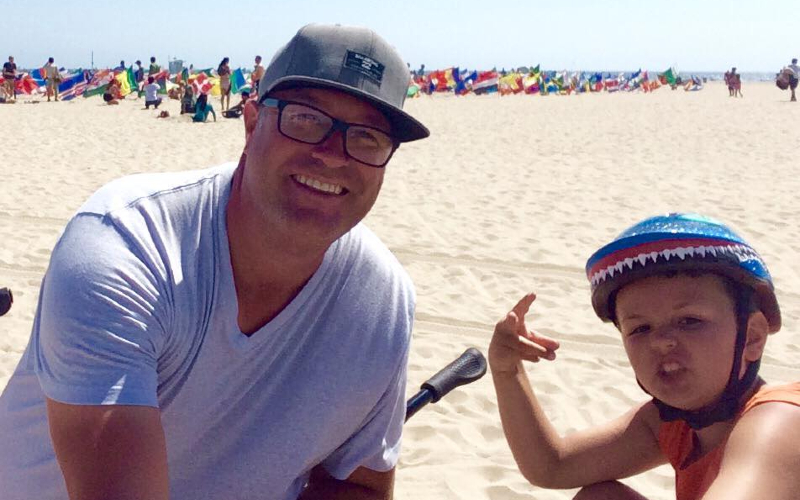
Lee Girardeau
Nesby Glasgow
Elijah Glover

Elijah James Glover was my eldest son. He was captivating and determined. He was not easily swayed and believed deeply in the love and commitment of family. Even as a young child he showed great appreciation for those he loved. I remember him working at yard sales and cutting grass for money to buy me birthday and Christmas gifts. He was funny, clever, intelligent, and wise beyond his years. And though he was bigger than the other kids, he was never aggressive and didn’t get into fights.
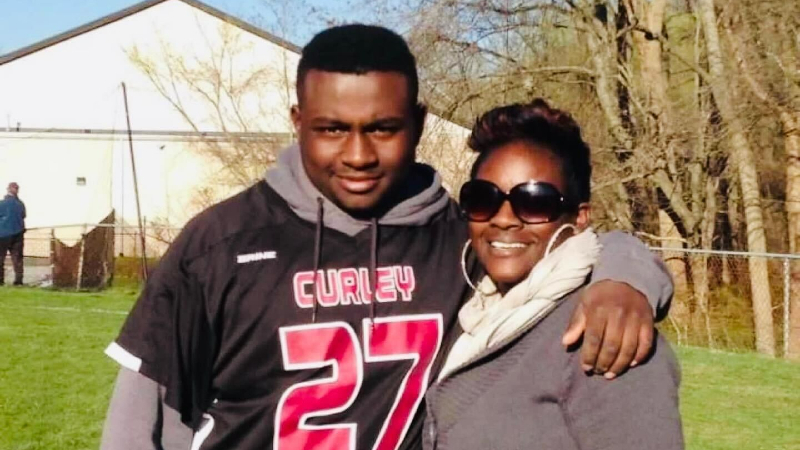
Elijah mastered everything he attempted and played with his whole heart. Elijah played baseball, wrestling and basketball, but his heart was in lacrosse, and his spirit simply embodied football. Elijah started little league football the summer of his fifth birthday. He practiced diligently and played at maximum potential. I was such a proud mom watching from the stands, in awe of his abilities. The onlookers shouting his number, “25” and his name, “E” was exhilarating. I felt a sense of pride and honor at who Elijah became when he put the stick in his hand or when he broke from the team huddle and they yelled, “Down! Set…”
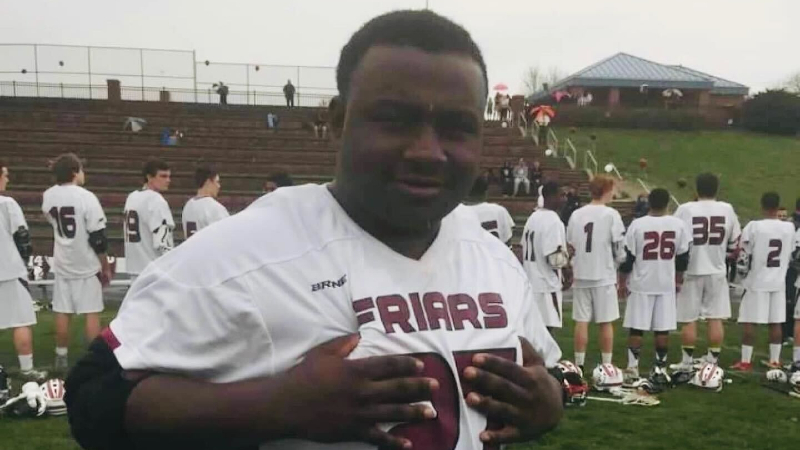
Elijah suffered many blows to the head we now realize were concussions. I wondered if they would have a lasting effect on Elijah’s brain. I started comparing the impact sustained by football players to those of boxing contenders and champions. I remember Elijah’s last hit to the head in 2015 after a lacrosse game when he was 17 years old. He reported seeing stars, feeling nausea, and requiring some assistance off the field. The concussion concerned me enough to make an appointment with a concussion clinic near our home in Baltimore, Maryland.
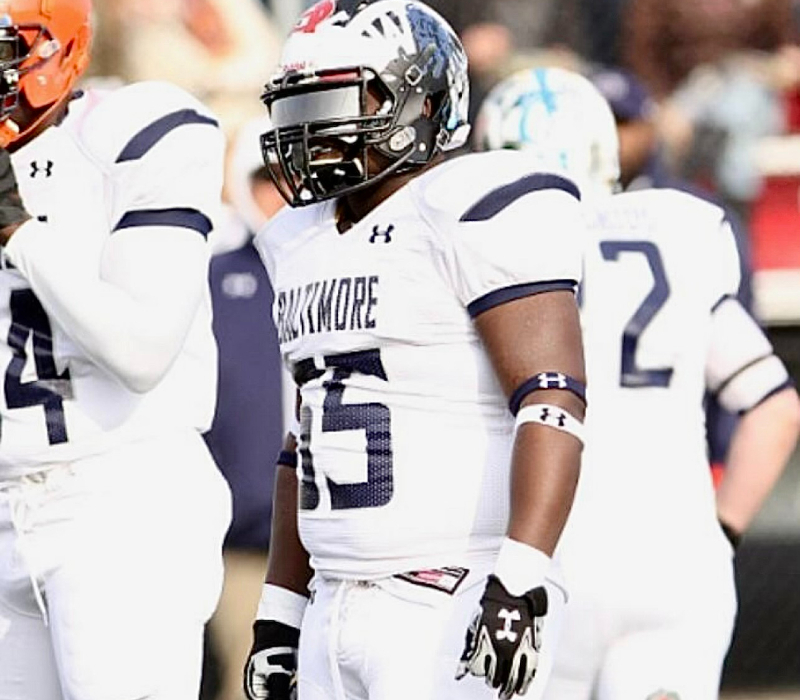
Shortly after the injury in 2015, I noticed remarkable changes in Elijah’s mood. He was usually reserved and calm, but he became irritable, constantly pushed boundaries, showed outward signs of aggression, made poor choices, and started smoking marijuana. Elijah forgot family memories and even when prompted by photos he simply could not remember they happened. He no longer went out with friends and became unmotivated. He was depressed and shared dark thoughts and feelings. He preferred to be asleep over being awake. Our relationship, which had always been as strong as a rock, deteriorated.
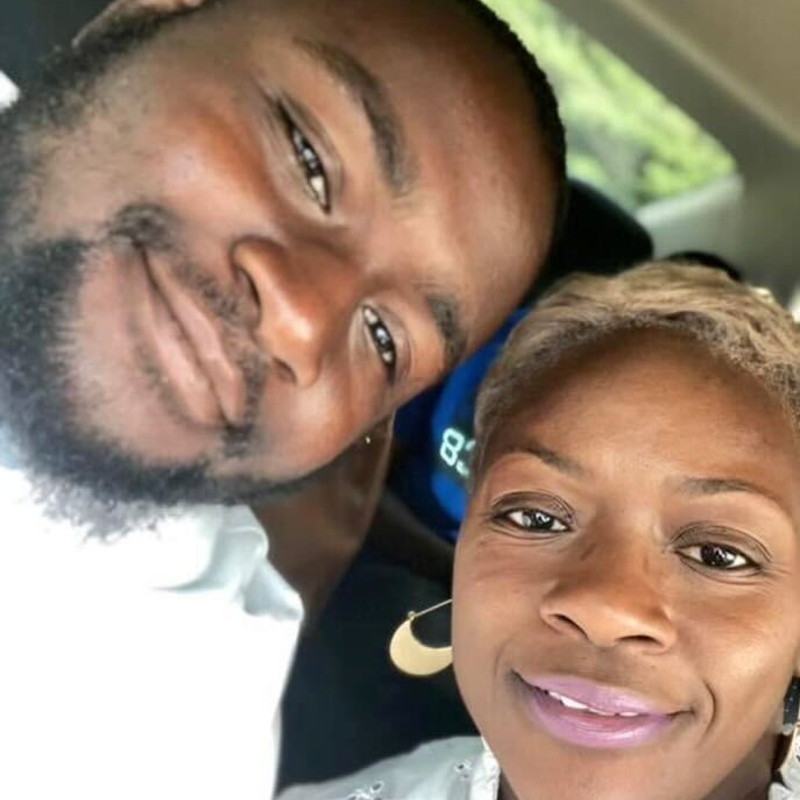
Elijah began an uphill battle with addiction. He was diagnosed with depression and bipolar disorder and was prescribed medications which he often abused, compounding his issues. After further consideration and research, I realized Elijah’s symptoms mirrored CTE. I vehemently disagreed with the mental health diagnosis and recognized his new, destructive behaviors aligned with CTE.
During his most recent stay in treatment, it looked like Elijah was going to turn things around. But unfortunately, he left us on April 17, 2022 due to a heart attack, stemming from an enlarged heart. He was just 24. Based on everything I learned before his death, I made the decision to donate his brain for CTE research at the UNITE Brain Bank and am currently awaiting the results.
Elijah is my son. I speak of him in the present because he will always be my beautiful, sweet boy. I was there for the two most important moments of his life – the day he was born and the day he transitioned. I worry I will forget his face, forget what his voice sounds like and forget the powerful force he was on the lacrosse and football fields. I worry he will be forgotten by all who encountered him.
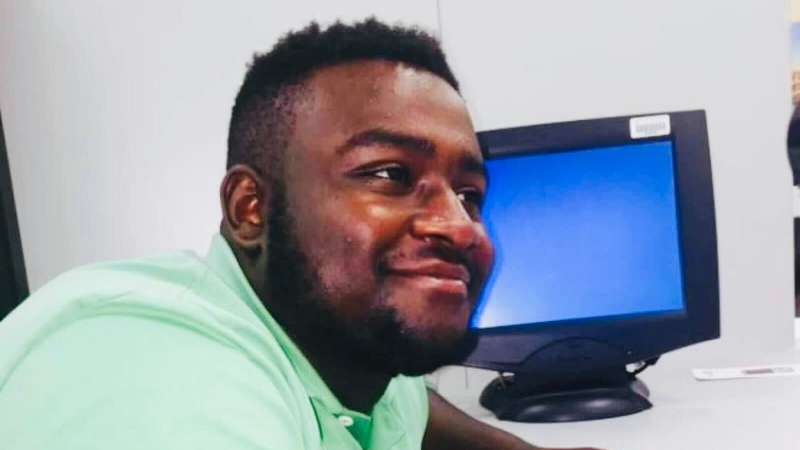
I want more minorities to be properly informed and educated about the impact of too many concussions early in life. I know parents may believe their child’s success is the only way to make it out of their circumstances. But it is unfair to look for the child to save his family at the cost of their brain and, in my son’s case, their life.
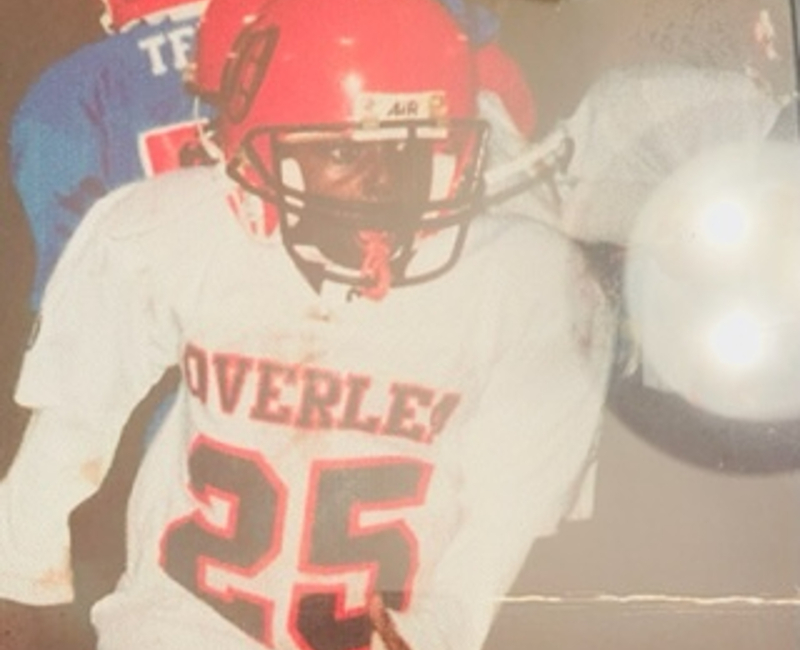
Some parents may not want to tell all of this information to the world. It might make them feel like they are ruining their child’s image. But I don’t share that feeling. I know Elijah and he would want to selflessly give to somebody else if it meant he could save their life. I am telling Elijah’s story to help parents make informed decisions about their children’s future. Unfortunately, it took Elijah’s experience to change my perspective on what sports kids should play. Elijah’s two younger brothers did not and will not play contact sports.
Football is great but it is crucial to know the many risks of playing the sport, especially before a certain age. My son was unrecognizable at the end; I didn’t even know who he was. You don’t want to have a memorial wall of all his trophies and accomplishments and not have him.
Yes, children need to play sports to stay out of trouble. But I challenge all parents to find a healthier way to keep their children productive – whether it’s safer sports like flag football, or other activities like coding. Please think of the long-term and consider how their life will turn out in the future.
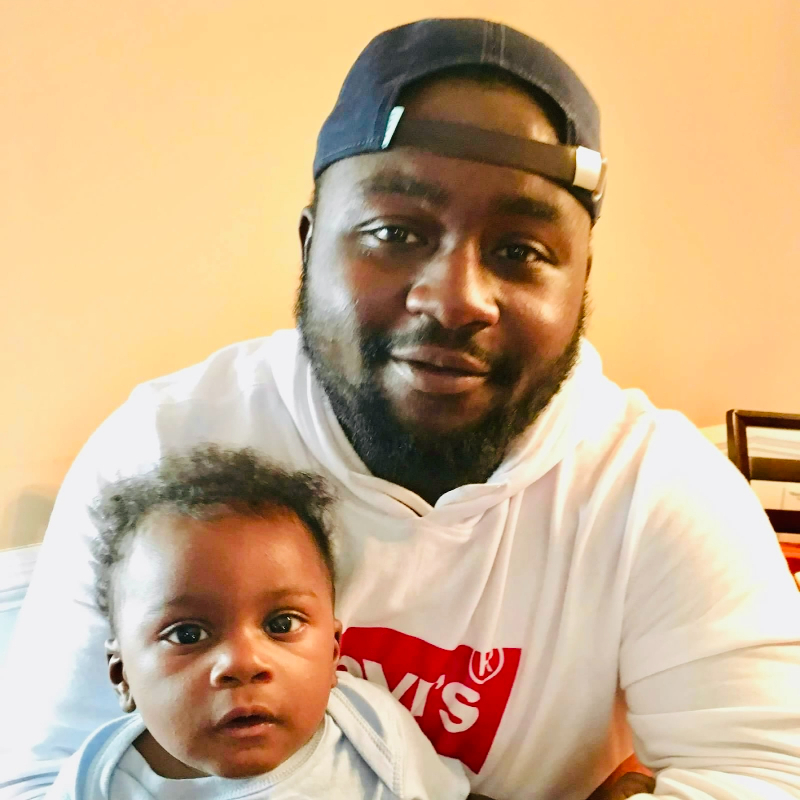
William Layton Golemon
Patrick Grange
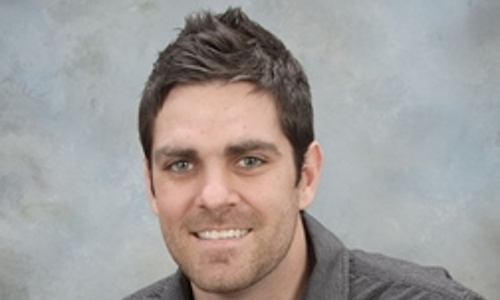
Grange will never be confused with the soccer greats Messi, Neymar, Ronaldo, and Ribery who converged on Brazil for the 2014 World Cup, but his impact is felt nonetheless. A high school soccer star in Albuquerque, N.M., Grange played at the collegiate and semi-professional levels. Like many soccer players, throughout his career he often headed the ball. At the age of 28 Grange was diagnosed with ALS (Lou Gehrig’s disease) and in 2012, at 29, he died. When researchers examined his brain they found surprising evidence that could have long-term implications for soccer. E:60’s Jeremy Schaap chronicles the life and death of Pat Grange, and his unintended legacy to the game he loved.
Peter Grant
The Damage Done
 Peter Grant ’83 played interhall football for Notre Dame’s Grace Hall. Dave Duerson, a classmate and casual acquaintance of Grant’s from the dorm, was an All-American defensive back and an 11-year NFL veteran who won two Super Bowl rings. Their athletic careers could not have been more different.
Peter Grant ’83 played interhall football for Notre Dame’s Grace Hall. Dave Duerson, a classmate and casual acquaintance of Grant’s from the dorm, was an All-American defensive back and an 11-year NFL veteran who won two Super Bowl rings. Their athletic careers could not have been more different.
But Grant and Duerson were alike in competitive passion. They played hard. And in the end, the game did not distinguish between them. It turned their intensity into an insidious, mysterious disease. Years removed from their last athletic collisions, they suffered a toll far worse than aching knees or arthritic hips, a loss impossible to repair or replace. They lost themselves and, within days of each other last February, their lives.
Collisions
Spero Karas ’89, the Atlanta Falcons team physician, talks about the intricate, delicate calibration of the brain in a way that suggests he keeps his in fine working order: “Brain cells communicate through ion channels, a normal flux of sodium and potassium and calcium, and then less implicated, of course, magnesium. There’s a fine balance of these as cells communicate with each other in the brain.”
To explain how a high-speed collision can jostle that communication into incoherence, Karas reduces it to a layman’s image: think of the brain at impact, he says, as a racquetball bouncing around a court. “You can imagine those cellular processes going haywire during a blunt-force trauma.”
That’s how someone suffers a concussion. When a collision generates g-forces strong enough to interfere with brain-cell functioning, the immediate effects are familiar: wooziness, confusion, slurred speech. “There’s still no treatment for it, there’s still no medication, there’s still no really firm diagnostic tool,” Karas says. “There’s very much still that we don’t know.”
Doctors do know that a player should never return to competition until the symptoms have subsided and an objective level of neurological functioning has been restored. Computerized testing before an injury occurs, now common at all levels for athletes in high-impact sports, establishes their baseline level of cognitive ability. After a concussion, they must return to that level before receiving clearance to play. This method identifies subtle variations in memory, orientation and reaction time that observation alone might miss, which helps prevent debilitating injuries to vulnerable brains that can occur if players return too soon.
But there’s another hazard, more difficult to identify, and possibly more dangerous: the cumulative effect of hit after hit after hit that never causes a diagnosed concussion. “Linemen might take a thousand, fifteen-hundred hits to the brain every season. That’s the nature of the position,” says neuropsychologist Robert Stern, co-director of Boston University’s Center for the Study of Traumatic Encephalopathy — the “brain bank” that investigates trauma-induced disease. “They may not complain of any symptoms, or few symptoms, or irregular symptoms.”
Nothing, in other words, that keeps a player off the field. Yet each collision could be contributing to the development of a degenerative condition with far worse consequences. Chronic traumatic encephalopathy (CTE) is the contemporary term for the disease forensic pathologist Harrison Stanford Martland identified in 1928 as dementia pugilistica. Punch drunk.
Repeated blows to the head can lead to this mental state that causes symptoms similar to — and, Stern says, often diagnosed as — Alzheimer’s, Parkinson’s, Lou Gehrig’s disease or the more general term, dementia.
Neuropathologist Ann McKee examines brains donated to the research center, which now has more than 70 from deceased football and hockey players, boxers, and military veterans who experienced combat trauma. On thin slices of the brain stems, McKee identifies the pathology that distinguishes CTE from those comparable diseases. An accumulation of the protein tau inhibits brain-cell function. The condition progresses slowly, but nothing can detect CTE in a living patient. More and more cells die and, depending on the areas of the brain affected, memory loss, mood or behavioral changes offer the first indication of a downward spiral that no treatment can prevent.
A fog
Before she got to know him, Dave Duerson’s future wife, Alicia, feared him. He played with such ferocity that she couldn’t imagine him acting any other way. Their first meeting dispelled that notion, and they stayed together for more than 25 years. “He was so sweet and kind,” Alicia told The New York Times. “He could leave the game on the field and go back to being Dave.”
For more than a decade that included Super Bowl titles with the Chicago Bears and New York Giants, he left the field and went back to being a loving husband and doting father to the couple’s four children. But sometimes just getting home after games was a challenge. In interviews after his death, Alicia recalled driving him because he felt too foggy to be behind the wheel himself.
Tregg Duerson ’08 doesn’t remember much about his father’s “Double D” football persona but recalls him “sleeping like a whole day” to recover from the physical punishment of NFL games. To Dave Duerson, the symptoms — dizziness, nausea, headaches — were routine. With some rest, he was ready to go again.
One report estimated that Duerson suffered 10 concussions, a number that sounds low to Tregg, given his dad’s aggressive reputation and the era when he played. “I think it was a much different culture than today.” And that number doesn’t even account for the untold number of normal hits that he just slept off.
Questions
Repeated blows to the head — whether or not they are severe enough to produce concussions — are a known cause of CTE, but those collisions alone are not enough to trigger the disease. Otherwise every former athlete in a high-impact sport would be debilitated later in life.
A growing body of research, especially the identification of CTE in 14 of the 15 deceased professional football players who donated their brains to Boston University’s study, has stirred public concern. And it’s not just pros, the people who exposed themselves to the risk for decades dating back to youth football. At age 21, University of Pennsylvania defensive end and team captain Owen Thomas committed suicide. His parents donated his brain, which had the telltale buildup of the protein tau associated with CTE. An anonymous, deceased 18-year-old high school football player is the youngest person ever shown to have the disease.
Stern notes that the prevalence of CTE among his center’s subjects reflects, in part, a self-selected group whose mental problems gave them or their families an incentive to seek a posthumous explanation. Still, 14 out of 15 professional football players is a startling statistic, especially for a condition all but absent among the general population. Although the victims have a history of repeated head trauma in common, the underlying susceptibility — why them and not their teammates? — remains a mystery.
“Are some people genetically more prone to developing the disease? Is it things like the age at which someone starts getting their head hit, or the overall duration of the exposure to brain trauma? Or the repetitiveness without rest in between hits?” Stern says. “We just don’t know any of those answers.”
Multiple hits
Katie Grant ’11 can only imagine her father as a high school athlete. If Peter Grant played football and hockey anything like he competed against his son, Zachary, “I’m sure he was very intense,” Katie says with a laugh.
He must have been. By his own account, Grant suffered seven concussions, including two that put him in the hospital. Once he was carted off the field, unconscious.
The specifics of the injuries — the circumstances, the severity, the length of recovery — have been lost in the retelling and the vague recollections of family and friends. “We also don’t know,” Katie Grant says, “if he took the full amount of time to heal after them.”
That’s a crucial piece of information. Using an individual’s baseline results, doctors today determine when players can return based on computerized, objective measurements. In the late 1970s, when Grant played high-school sports, identifying how many fingers a trainer held up might have been enough. “Now what’s important is screening, avoiding a second injury to a compromised brain,” Karas says. “That’s where the catastrophic, irreparable damage occurs.”
It’s possible that Peter Grant suffered that kind of irreparable damage before he even graduated from high school.
Long-term fears
Tim Ridder ’99 remembers his concussion and its aftermath the way most people might recall their 4th birthday party. “Remembering,” he says, “is kind of a funny word to throw in there.” From a video of his sideline evaluation and recollections of family and friends — but not from memory — he has cobbled together an account that has become the story.
During a preseason practice as a ND freshman offensive lineman in August 1995, Ridder suffered a concussion on one play and, unaware, returned to the line of scrimmage for the next. After the snap, he never moved from his stance. Assistant coach Joe Moore barreled toward him, raging. But when Moore got there, he found Ridder dazed and in tears, and summoned the doctor.
Longtime Notre Dame sports-medicine specialist Dr. Jim Moriarity went to work, with a camera recording the examination for teaching purposes. In addition to answering Moriarity’s questions, Ridder follows the doctor’s finger with his eyes, touches his nose, and wobbles trying to put one foot in front of the other like a drunk driver failing a field-sobriety test. “I think at that point I told them I had won the Blue-Gold game on my own,” Ridder says, “and I had never even been a part of the Blue-Gold game.”
He hadn’t even officially enrolled as a student. Freshman orientation was the next day, but instead of attending the event, he somehow ended up on the other side of campus, where a friend found him. Over the next week, he called home four times to tell his parents he had suffered a concussion. Not only were they aware of the injury, but Ridder’s father was at the practice when it happened.
Now 34 and a middle-school principal in Leadville, Colorado, Ridder thinks about the potential long-term effects of his “one and only” diagnosed concussion that kept him out about six weeks. All the hits from a football career that included two years in the NFL already reveal their residual aches in his knees and shoulders. He can live with those things. “I don’t want my brain to be the thing that happens early,” Ridder says.
Even that threat — memory loss, dementia, mood or behavioral changes — comes with a sense of culpability. “I did this to my body,” he says. “I had a lot of fun doing it; I knew what I was getting myself into.” Then he reconsiders the thought. “Maybe not completely,” he says, but common sense suggested what science has begun to establish — the correlation between repeated hits and mental decline later in life. Ridder remembers a professor telling him that if men were meant to play football, they wouldn’t have to wear an exoskeleton.
He thought more about the physical consequences then, conscious that his body could absorb only so much punishment without retaliating. That awareness shaped the message he delivered to children about the importance of education: “I’d say, ‘Your body falls apart, but your brain doesn’t. Take care of your brain because that’s what you’ll have going for you long after your body breaks down.’”
Moving forward
After he retired from the NFL, a champion with a charitable heart who had received the league’s Man of the Year award for humanitarian work, Duerson’s professional success shifted to a new arena. His business aspirations were at least as grand as anything he pursued as an athlete — and he paid his dues like a rookie to achieve them. After retiring from football in 1993, he became a McDonald’s franchisee, which requires months of training that includes working in a restaurant. “A year before that, this guy was in the NFL,” Tregg Duerson says. “That’s saying something. He was very hard-working no matter what he did.”
After owning three McDonald’s franchises, he bought a majority stake in meat-supplier Fair Oaks Farms and later started Duerson Foods. He remained involved in NFL labor issues and became a Notre Dame trustee. In business, he was the same ambitious, charismatic success story he had been in football. Even then, whether he recognized it or not, the damage already had been done.
Crash test
Helmets don’t help. Not enough, anyway. Most current models are not designed to protect against concussions at all. They are meant to prevent skull fractures — and they do. “But the head still moves around inside the helmet,” neuropsychologist Stern says, “and the brain, more importantly, still moves around inside the skull. That’s what causes brain trauma.”
A Virginia Tech study — sort of a crash test for football helmets — released a star-rating system in May, the first comprehensive consumer safety information ever published on the industry. As if to illustrate how little had been previously known, the NFL’s most widely used helmet — the league does not mandate what players wear — finished next to last in the study.
There have been improvements. New helmet models absorb more g-forces before they reach the brain; this could reduce the number of concussions. But no current technology can prevent them. Says Stern, “Equipment is not the answer — or it’s not the sole answer.”
As Stern and others continue to pursue research breakthroughs, they know this much: Eventually, some of the people exposed to the thwack of helmet on helmet, over and over again, will get sick. “The key to how to help prevent CTE, or at least decrease the risk,” Stern says, “is to reduce the overall exposure.”
That means less hitting in practice, a precautionary tactic beginning to gain traction. The new NFL collective-bargaining agreement limits contact in offseason workouts and regular-season practices. At the college level, the Ivy League has imposed the most stringent hitting restrictions yet. The rule, implemented this season, allows tackling, or contact of any kind, only twice a week. Current NCAA regulations permit five full-contact practices.
Loving life
There is a history of depression in Peter Grant’s family. In his early 20s, he was diagnosed with bipolar disorder, which he managed for decades with medication. He was open about his condition with his wife and three children, but it was controlled so well that nobody else would have known. “He was always his usual self,” Katie Grant says.
Outgoing and active in his West Bridgewater, Massachusetts, community, Grant chaired the town finance committee, served on the Bridgewater Savings bank board and coached kids’ sports. An accountant with an undergraduate degree in business, he built a career in finance and operations for The Boston Globe and later worked as a media consultant. “He loved his job and the media business in general,” Katie Grant says.
She describes all her father’s interests that way. He loved to talk, he loved to read, he loved to travel. He especially loved Notre Dame. That influenced his daughters. Katie graduated in May and younger sister, Chrissy, is a senior. (Their brother, Zachary, is in high school.) The memory of her dad’s animated campus visits makes Katie laugh. “It was almost too much.”
A sporting chance
Tim Ridder’s torn. He believes safety should be a priority, equipment and medical treatment should be state-of-the-art, and athletes should have as much information as possible about the risks of participation. On the other hand, he loved playing football, and he would hate to see the sport suffer if reasonable precautions could be put in place. “We have to make sure we’re not creating another Rome,” Ridder says, “where there are gladiators dying on the field depending on whether Caesar gives a thumbs-up or thumbs-down.”
Some former players believe that’s how they were treated. Claiming the NFL mishandled concussion treatment and concealed evidence for decades about the long-term effects of head injuries, in July a group of 75 former players sued the league. The NFL vowed to fight the suit, but its approach to head-injury awareness has changed in recent years.
A league medical committee formed in 1994 produced reports downplaying the ramifications of multiple concussions. A 2007 pamphlet informed players that “current research with professional athletes has not shown that having more than one or two concussions leads to permanent problems if each injury is treated properly.”
The message shifted before the 2010 season with locker-room posters describing the threat of depression and dementia, new rules about concussion treatment, and a $1 million donation to the Center for the Study of Traumatic Encephalopathy. “It is the hot-button item in the NFL,” Karas says. “It’s probably what we spend the most time on in our disability meetings. What is the NFL but a large corporation that employs thousands of people? And being able to characterize the amount of injury and potential disability and getting these guys back safely is the number-one medical issue in the NFL.”
Duerson’s fall
Duerson understood football-related disability as well as anyone could without medical training. And he knew the horror stories all too well.
Part of a six-member panel that evaluated retired players’ disability claims, Duerson heard about the suicides and the substance abusers. He listened to stories about wild personality changes — violence, irritability, depression.
Duerson could sense himself unraveling in similar ways. At first, he made offhand comments about his brain, expressing concern over symptoms he already felt and fear of how they might progress. His children never knew about those worries. “He was a very prideful man,” says Tregg Duerson, who had never heard of CTE before his father died. “He would not have had that conversation with me.”
But unmistakable changes in personality and judgment altered the course of Duerson’s life. The patient man and prudent executive his family knew began to lash out in profane explosions and make bad business decisions that led Duerson Foods into financial peril. “He always had a very strong temper,” Tregg Duerson says, but in retrospect, he can see how the disease intensified that trait. “I think toward the end of his life, his temper was more quick — he was easily agitated.”
Duerson’s personal problems splashed into the newspapers in 2005, when he was arrested after pushing Alicia against a wall at the Morris Inn on the University campus. He pleaded no contest, resigned from the Notre Dame board, and soon he and his wife were divorced. Everything seemed to be falling apart because his personality had changed in cataclysmic ways that he feared with chilling prescience.
Mental collapse
In December 2009 something changed. Medication that had controlled Peter Grant’s mental illness for more than two decades stopped working. He became lethargic and withdrawn. Depressed.
Grant’s doctors adjusted the dosages, to no avail, and searched in vain to explain alarming mood changes. Home for Christmas that December, when her father’s new symptoms surfaced, Katie Grant thought he was preoccupied with work. When he visited Notre Dame two months later for Junior Parents Weekend, she recognized the depth of his depression.
His usual enthusiasm for a trip to South Bend vanished. “He just sat in the hotel room, didn’t want to do anything, didn’t even want to walk around campus,” Katie says. “It was a 180-degree transformation from anything I had ever seen.”
Through the summer and into the fall of 2010, it got worse, still without explanation. He had manic episodes — not sleeping, running around, talking incoherently. “Really sort of out of his mind,” Katie says. One episode in October left him hospitalized for two weeks. After his release, he remained unstable. Alternately manic and depressed, Grant would claim to be feeling all right on his better days, “but it was a lot worse than he was letting us know.”
There was no violence or anger, just withdrawal and forgetfulness. A dinner conversation would disappear in the fog of his mind, and when the subject came up again a day or two later, he would be upset that he hadn’t been told about it before.
That change was especially jarring for Grant’s family, who counted his intelligence and sharp attentiveness among his most notable characteristics. He was always on top of things. The difference could not have been lost on Grant himself, either, and they imagine that the frustration of his prolonged mental descent took an untold toll.
“I definitely think he felt hopeless,” Katie says, “that he just wasn’t going to get better.”
Duerson felt the same way. His financial problems reached their nadir in 2010, when he filed for bankruptcy and Alicia sued to collect unpaid child support, seeking assets that included his NFL Man of the Year award. By then he lived in Sunny Isles Beach, Florida, a family vacation destination where he moved full-time. In retrospect, he might have moved there to retreat from life as he felt his ebbing. Duerson’s friend Ray Ellis told the Miami New Times, “He didn’t want to crumble in front of an audience.”
Legacy
On February 8, Peter Grant committed suicide. Nine days later, Dave Duerson shot himself in the chest, a report that reverberated around the country because of the reason he did it that way: to preserve his brain for CTE research.
Both the Grant and Duerson families donated the brains. Grant’s showed a mild level of CTE, Duerson’s much more advanced. Announcing the findings in Duerson’s case, the neuropathologist McKee displayed slides showing extensive damage to areas that affect “judgment, inhibition, impulse control, mood and memory.”
There’s solace in the CTE diagnosis for both families, insight into the torment that led Grant and Duerson to take their own lives. Beyond the emotional comfort, Stern says, their donations establish a legacy of medical evidence that transcends their own tragedies. Uncertainty still surrounds the disease. Players are left to wonder whether they will suffer a similar fate, or if hints hidden in the brains of previous victims will reduce the impact.
Jason Kelly, a former sports columnist for the South Bend Tribune, is an associate editor of the University of Chicago Magazine. His most recent book is Shelby’s Folly: Jack Dempsey, Doc Kearns, and the Shakedown of a Montana Boomtown. Email him at [email protected].